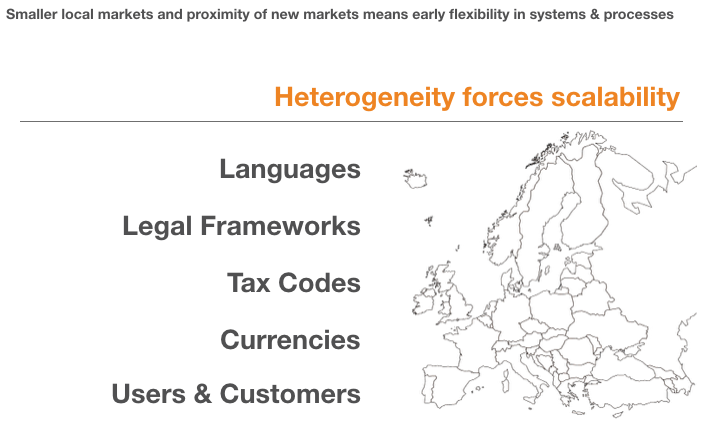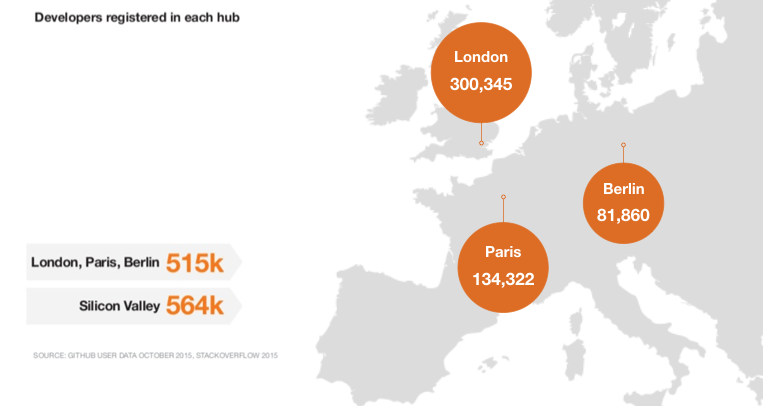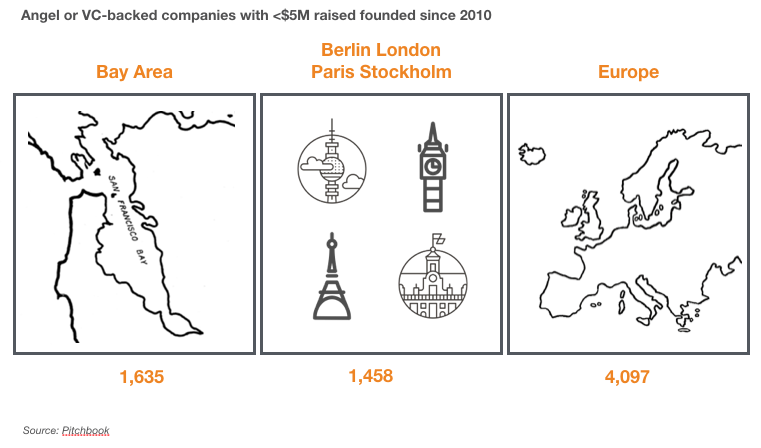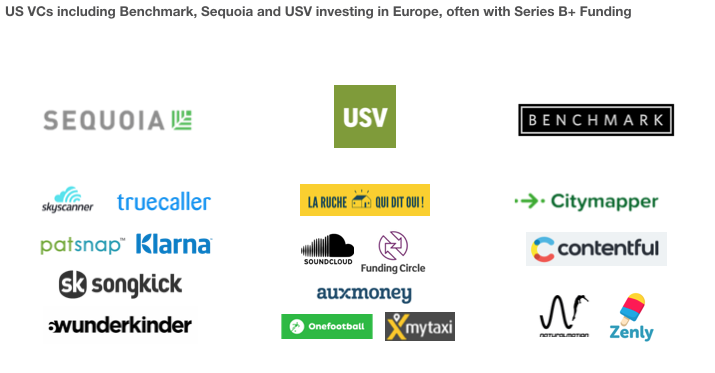As a Californian who grew up in Hong Kong I'm often asked, What are you doing in Europe? My response is consistent. Europe is the most exciting place to be in technology today.
Why?
If in China we have BAT (Baidu, Alibaba, Tencent), and in the US we have GAFA (Google, Apple, Facebook, Amazon) is the European monolithic tech acronym just around the horizon? Not quite. These acronyms exist because they reflect the concentration of capital and market cap tied up in a handful of companies. I'm not sure Europe will get to that point in the next few years and I'm not convinced we should. We have tremendous potential to be a connector between east and west, between north and south, to connect creativity and execution within a framework mindful of privacy and distrustful of monopoly. That's why I'm excited about European tech.
Let's start from the ground up. Europe has all the ingredients to build globally competitive next-generation technology businesses: education, talent, capital, and markets. Europe is a network with various cities as the primary nodes, and we are just starting to see a degree of density within the individual ecosystems that is driving major synergies both within and across these nodes.
As a platform, Europe is producing businesses with global mindsets and capabilities. At SoundCloud we had 35-40 nationalities represented among fewer than 200 employees in Berlin. That may not sound like a lot but try and sit down and name 40 countries. By the time you've passed 30 you're naming some relatively obscure places. You can't imagine the strength that diversity brings when it comes to product decisions, cultural decisions, and strategic decisions. Moreover, given the heterogeneity of the continent itself in terms of languages, legal frameworks, tax codes, and userbases, the businesses are built to be modular in a geographic sense from the start.

If we look at fundamentals, there are fantastic technical universities spread across the UK, Germany, France and beyond. Moreover, there are practically as many developers today in London, Paris, and Berlin as there are in Silicon Valley. Many of these developers are world class, and you will find former engineers from Google, Facebook and Twitter in California scattered across the coffee shops and startup offices in Berlin, London, Stockholm, or Lisbon. (For a deeper dive into the talent that is powering Europe's startups head over to our recently published Talent Report)

These developers are increasingly pairing up and building companies with business-minded operators who have experience at world-leading tech companies, banks, or consultancies. Since 2010 1,635 early stage (raised <$5M) companies have been backed by angels or VCs in the Bay Area. In London, Paris, Berlin and Stockholm that number is 1,458 companies. For VCs, the investable universe is deep and getting deeper.

This set of circumstances has led to increasingly large & chunky >$1B exits (2016 saw six exits alone worth $70B in Europe) that have two main consequences. Firstly, they signal to the ecosystem that founding a company or working for stock options is a viable career path. Secondly, these exits inject the ecosystem with founders and employees who now have both capital and know-how to reinvest into it.
This, in turn, has started to attract more capital investing in technology businesses through all phases of development. There are new accelerators and incubators cropping up from Shoreditch to Kreuzberg, with more seed capital not far behind. Here at Balderton we feel very confident that our singular focus on European Series A is differentiated, but in later stages Series B+ (and to be fair, earlier as well) we've seen tremendous interest from US VCs like Benchmark, USV, and Sequoia who are as impressed with companies being built here as we are.

All in all, I'm excited about Europe not because it will replicate what we've seen in San Francisco or Shenzhen. Instead, we have tremendous potential here to build world leading companies leveraging the unique characteristics of the European platform: An international core, user-centric privacy frameworks, design-driven products, and competitive markets.
Thoughts? Are you all as excited about Europe as I am? Why or why not?